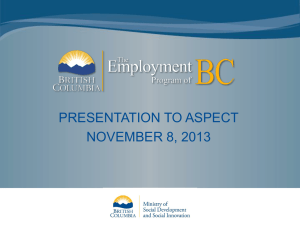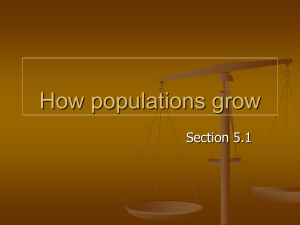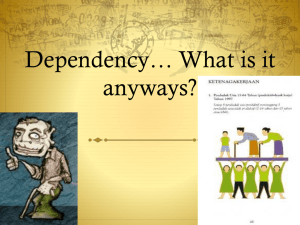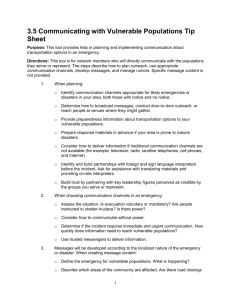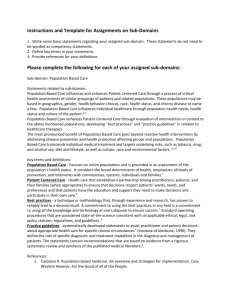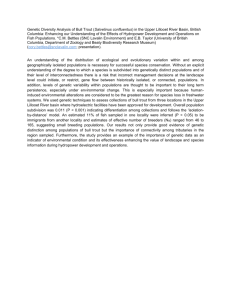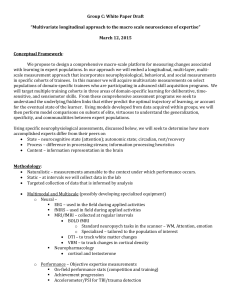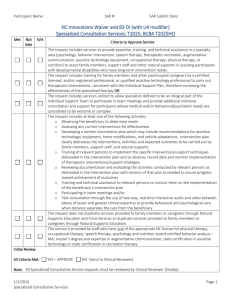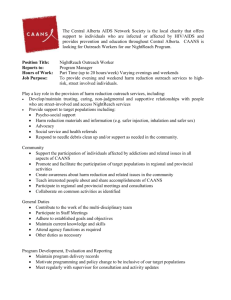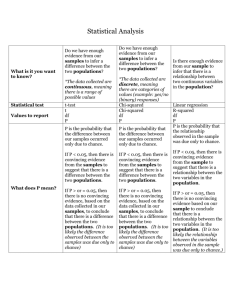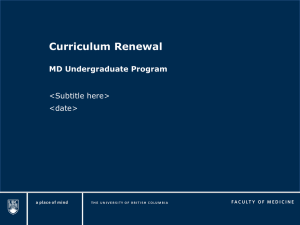Presentation_Outline__Aug_1_Keynote_Address_V1 2.3 MB
advertisement
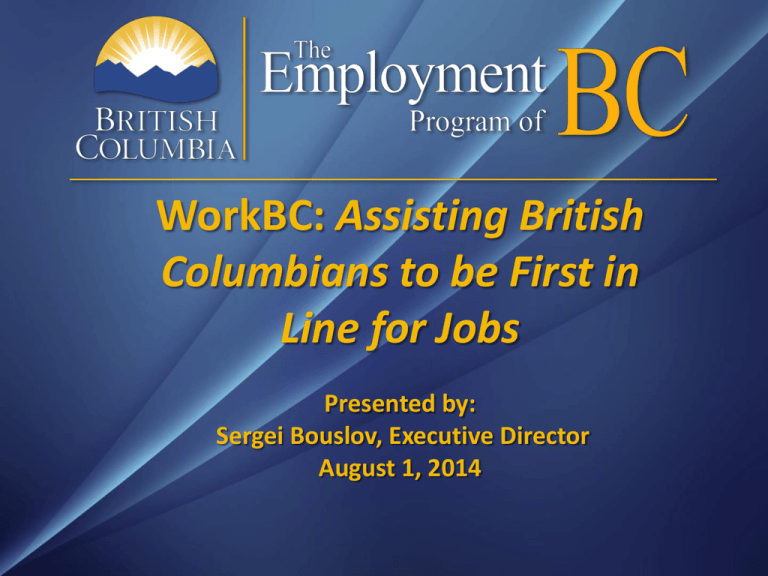
WorkBC: Assisting British Columbians to be First in Line for Jobs Presented by: Sergei Bouslov, Executive Director August 1, 2014 Overview Performance highlights Building on lessons learned Areas of focus Opportunities and future direction 2 Employment Program of BC Launched April 2, 2012 after over 2 years of consultations 85 WorkBC Employment Services Centres (ESCs) throughout BC 100+ satellite offices with outreach and itinerant services ESCs provide a range of services to any unemployed British Columbian Assist clients to become employment ready and find & sustain a job 3 EPBC Services and Supports Resume preparation Assistance with job searches Employment counselling and support Interview preparation Employment related workshops Employment needs assessments Financial needs assessments Short-term certification Assistive technology & devices Skills training (funding for tuition and living supports) Living supports during apprentice training Preparation for self-employment Customized employment Wage subsidy Job development Job coaching Follow-up support for job maintenance & retention 4 4 Program Figures Since April 2, 2012: Served 160,449 people, with over 80 percent receiving case management 38,776 employment outcomes achieved We achieve an overall employment rate of about 42% Employment outcome rate is nearly 80% for clients who have completed case management EI clients account for 36% and BCEA clients account for nearly a third of all clients 91,076 self identified as being from one or more specialized populations 5 Specialized Populations 20,000 18,000 31% 27% 16,000 14,000 22% 12,000 10,000 13% 8,000 11% 6,000 8% 4,000 2,000 6% 1% 0 Persons with a disability Youth Multi-barriered Rural and remote populations Aboriginal people Immigrants Survivors of Francophone violence and/or abuse 6 Key Lessons Learned Program Design: A single program replacing ten legacy programs Complex contracts to support program Simultaneously designing program and system Implementation : Community level & internal organization changes needed to support program Adjusting program model to realities of system Ensuring financial viability for contractors 7 Collaborative Problem Solving Collaboration and collective problem solving: o Ministry-contractor co-led working groups o Solutions have been jointly recommended and implemented on an ongoing basis o Continued focus on capacity building and service consistency Flexible and adaptable program design Fair and sustainable payment model Collective effort to support program stabilization 8 Moving Forward – Key Priorities Mobility of clients to satisfy labour demand Greater focus on skills development training Expanding networks with employers Continued development of strategies to support specialized populations, including Aboriginals Youth Immigrants Persons with disabilities and multi-barriered 9 Moving Forward (continued) Program initiatives to support all clients: o Accessibility 2024 for Assistive Technology o Customized Employment o Persons with Disabilities Employment “ Culture Shift” o White Paper Consultation President’s Group Technology to support WorkBC: o Client Portal o BI Portal, common data sharing & analysis 10 BC’s Skills for Jobs Blueprint 11 Supporting the Blueprint Continue flexible and adaptable program delivery o Identifying new and addressing existing gaps Collaboration to improve outcomes o Contractors & career practitioners role o Utilizing Community Employer Partnerships initiative Informed decisions (EPBC Program Evaluation) 12
